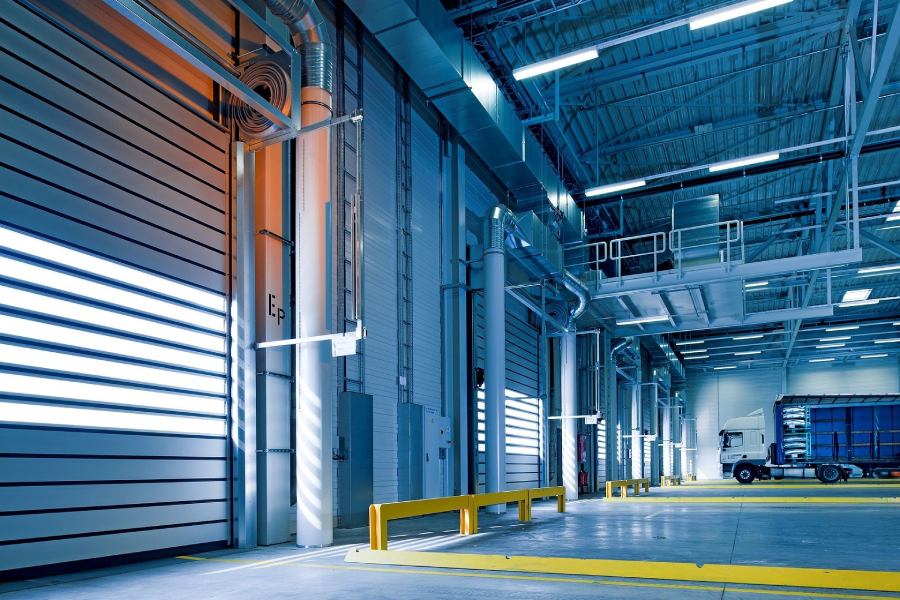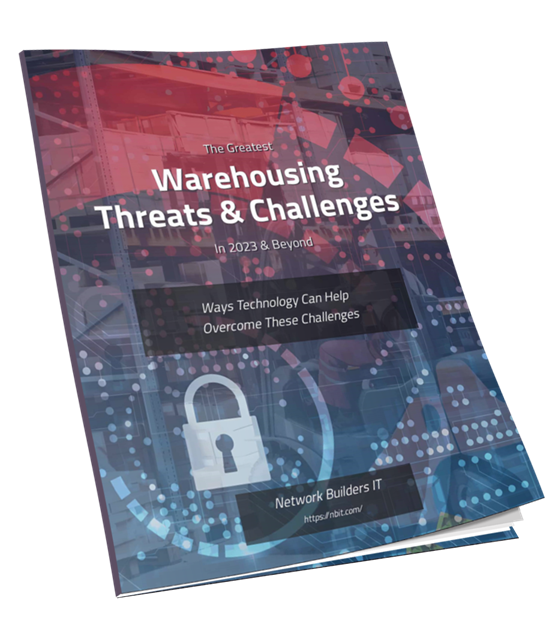
Why Cybersecurity is Essential for Warehousing Operations
As technology continues to become more prevalent in business, it is increasingly important for warehousing businesses to prioritize cybersecurity. The warehousing industry is embracing automation and evolving at a rapid rate. This automation provides a variety of benefits, but it also has its downsides. As organizations become more dependent on technology to manage operations, security threats become more prevalent—which is why proper protocols are needed to ensure data remains secure.
Warehouses hold a wealth of confidential information such as customer records, financial statements, and supply chain operations, all of which need protection from attempts at theft, fraud, and manipulation.
Below, we’ll look at some key reasons why cybersecurity is so important for the warehousing industry and what measures should be taken to protect your systems from attacks. As we’ll see, one aspect of an effective plan is to enact testing procedures that are periodically run before disaster has a chance to strike. Doing so allows you to spot potential vulnerabilities and weaknesses so they can be resolved before they turn into a problem.
We’ll also look at why it’s important to remember that warehouse staff play a key role in protecting their facility’s sensitive data, and why implementing appropriate daily practices and standard procedures can significantly reduce the risk posed by cyber threats. Ensuring that you and your staff understand and follow common industry best practices in focus areas (such as Wi-Fi encryption and password management) will further help improve overall cybersecurity positioning within your warehouse organization.
Proactive Maintenance
Proactive Maintenance is an important part of any company’s cybersecurity strategy. This focuses on getting ahead of potential threats before they become issues, which helps prevent the consequences that may follow a breach or other malicious attack.
Some examples of proactive maintenance techniques include:
- Running regular security audits
- Updating software as soon as updates are released
- Implementing comprehensive firewall policies to prevent unauthorized access
By staying up to date with the latest technologies and taking necessary precautions, warehouses can keep networks secure from prying eyes and ensure customer data stays safe.
Additionally, having multiple layers of security for distinct parts of the systems will provide extra protection against attacks or breaches.
For example, enabling multi-factor authentication for customers when logging into their accounts is one measure that serves a dual purpose—fist, to protect against unauthorized access and second, by ensuring a better service experience for customers who feel more secure when using your platform.
Proactive Cybersecurity Maintenance for Warehousing Operations
Maintain Compliance
Staying compliant with cybersecurity standards is essential for warehouses to protect their data from cybercriminals.
To stay current and up to date on the newest threats, it is important that companies ensure they are regularly auditing internal systems and protecting any potential vulnerable points of entry. Establishing a sound cybersecurity regime designed to detect any suspicious activity or patterns of behavior is an invaluable asset in helping prevent breaches.
Creating employee awareness training is essential when addressing common threats like phishing scams and other forms of malware attacks. This can help keep employees informed about how to identify malicious emails and how best to meet compliance protocols when storing confidential information.
By taking proactive measures like these, warehouses will be better able to remain secure while still allowing the flexibility they need to remain competitive in the digital age.
Increase Productivity
Increased productivity is essential for any business—specifically in the warehousing industry. Through proper cybersecurity protocols, businesses can quickly respond to threats while minimizing disruption in operations because of cyber-attacks.
Having managed security systems helps increase productivity because they protect the equipment running automated processes from malfunctions or damage caused by cybercriminals. Having safeguards against unauthorized access helps ensure that critical information stays confidential and safe from unauthorized personnel.
And, by protecting data integrity through an effective security system, companies are able to better manage their workflow without the worry about reduced performance due to potential attack risks.
As you ramp up your productivity, it’s important to keep in mind the increased responsibility that comes with protecting your customer’s data. This involves setting up authentication mechanisms to access certain databases and encrypting technology to keep cybercriminals from stealing customer account records!
Examples of such measures include:
- implementation of secure authentication mechanisms for accessing sensitive databases
- use of state-of-the-art encryption technologies (to ensure that customer account records cannot be exploited by cybercriminals on the internet)
An effective cybersecurity strategy entails more than just the active monitoring of networks and applications. It is equally essential to have a plan in place on how to handle identified threats to prevent future occurrence. By doing so, it boosts not only employee morale but also assures them that their efforts are being protected against cybercriminals or accidental loss of confidential company data due to unfortunate incidents such as hacking or phishing attacks.
A comprehensive cybersecurity plan is critical to ensure business continuity and protect the organization’s reputation.
Proactive Cybersecurity Maintenance for Warehousing Operations
Protect Your Reputation
Protecting the reputation of your business is integral to long-term success and growth. Cybersecurity plays a key role in this endeavor (as it ensures that confidential data stays intact and secure from external threats).
Proper security measures help ensure operational continuity by providing an effective system for preventing malware infections, unauthorized access, and data breaches that can damage reputation and financial stability.
Warehouses can safeguard their critical infrastructure from cybercriminals by implementing robust security measures such as multi-factor authentication, encryption technologies, physical firewalls, and patch management protocols.
These measures help prevent unauthorized access and protect sensitive information stored in the network. They also work to counteract vulnerabilities that may be exploited by cyber attackers seeking to infect computer networks with malware.
In addition to protecting against cyberattacks, implementing these security measures can prevent intellectual property theft and reduce many potential risks faced by organizations that rely on digital technology for their daily operations. With businesses relying more heavily on automated systems for managing processes (such as shipping and receiving goods and services), it is crucial to have proper protocols in place to safeguard these systems. Businesses can then remain competitive and ensure continuity of operations while minimizing exposure to cybersecurity threats.
Generate More Profit
Growing and maximizing profits is an important aspect of any business, and warehouses are no exception. By implementing cybersecurity measures, companies can reduce their risks and ensure data remains secure from any external sources.
These measures should include up-to-date firewall protection as well as access control systems to regulate who has permission to view confidential information. Introducing additional layers of encryption with strong passwords will also increase data security by preventing unauthorized individuals from reaching points of access containing sensitive information.
It is critical to implement an overall cyber risk management plan in order to minimize potential vulnerabilities within the warehouse environment. Failure to do so can have serious repercussions on the organization’s financial efficiency and reputation, particularly when creating new technologies or upgrading old systems.
Regular security audits and assessments are necessary to ensure that cybersecurity compliance levels remain at acceptable standards while identifying any problematic areas that require attention throughout the company’s IT infrastructure.
Investing in employee training is also crucial to ensure that staff members understand how to maintain network safety when working remotely or using applications connected wirelessly to the organization’s system — such as Voice Over IP (VoIP) phones or laptops — carrying personal accounts like social media websites.
Companies can improve their profit margins through better prevention efforts against threats posed by both external and internal sources by promoting digitally responsible practices. These efforts will continue to be essential for future years of growth and success for the organization.
Proactive Cybersecurity Maintenance for Warehousing Operations
Focus on Your Core Business
When it comes to managing a warehouse, there are numerous tasks to keep in mind. From managing personnel and meeting customer needs to handling logistics, the workload can quickly become overwhelming.
An additional burden that no warehouse operator or employee wants to deal with is a cyber-attack or malware infection, which can lead to delays, downtime, and frustration. Fortunately, having proper cybersecurity measures in place can prevent most of these issues before they occur, freeing up you and your staff to focus on running your business.
If an attack occurs or a security breach happens, a well-designed response plan and the right tools can swiftly mitigate damages and minimize downtime. This means your operation can resume normal service within minutes or hours, rather than potentially days.
With cybersecurity concerns taken care of, warehouse managers and employees can invest their time, energy, and resources into meeting customer demands, improving satisfaction levels, and growing their business without worrying about malicious hackers or other cybercriminals.
Gain a Competitive Edge
As the warehousing industry evolves, the move towards automation has become essential for warehousing businesses. When IT is leveraged properly, it helps your team become more efficient, ensuring inventory is properly sorted, stored, and retrieved as needed.
This helps ensure you stay on time with commitments and can properly track and detect potential issues before they turn into problems. Automation also helps free up time and resources so you can focus on growing your operation, giving you an edge over competitors.
As technology continues to play a vital role in our lives, businesses have increasingly relied on it to stay competitive. Unfortunately, this reliance on technology has also opened more opportunities for cybercriminals to access sensitive information, such as customer records, financial statements, and supply chain operations. As a result, it’s critical for businesses to be vigilant about their cybersecurity measures and take necessary steps to protect valuable data.
Because of this, it is more important than ever for warehouse companies to develop proper protocols to protect the systems used. The focus should be not only implementing protective and preventative measures, but also investing in up-to-date solutions that can mitigate potential risks posed by outside forces (or even internal sources with malicious intent).
Ensure Your Warehouse Has Proper Cybersecurity Today
As you can see, cybersecurity is an essential consideration for businesses operating in the warehousing industry. With the increasing automation and digitization of warehouse operations, there is a higher vulnerability to cyber threats.
To prevent data breaches, it’s important to implement encryption, access control, and user authentication protocols. These measures will also help to protect customer records, personal information, and confidential financial operations from external threats.
By investing in cybersecurity, warehouses can safeguard their reputation, preserve their data integrity, and prevent the significant costs that may result from successful cyberattacks. As such, it is paramount for warehousing businesses to prioritize cybersecurity as a critical aspect of their operations.

Download "The Greatest Warehousing Threats & Challenges in 2023" Report Now
This free 38-page report outlines the biggest threats & challenges the warehousing industry faces in 2023 and beyond, and provides helpful insights into ways technology can help organizations survive & thrive as the industry continues to rapidly evolve.
"*" indicates required fields
